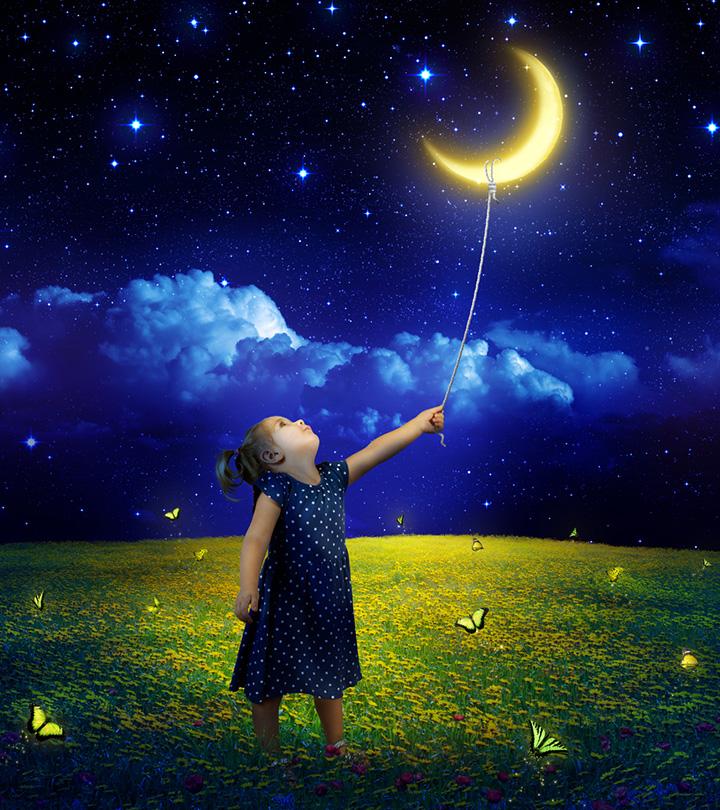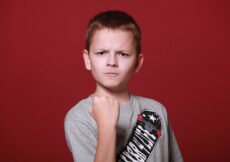Hallucinations are sensory experiences without actual stimuli where children see, hear, taste, smell, or feel things that are not present. In most children, hallucinations may be a part of their normal development and resolve without complications. However, some may experience them due to psychiatric disorders, such as schizophrenia and bipolar disorder, or non-psychiatric problems, such as high fever.
These sensations may or may not be pleasant but often interfere with a child’s normal functioning. Although most cases of hallucinations are transient, seeking medical attention is recommended.
Read this post to learn about the prevalence, types, causes, and treatment of hallucinations in children.
Are Childhood Hallucinations Common?
Recent data shows that hallucinatory experiences are common in children but more so in adults (1). A study published by the Cambridge University Press (2018) stated about an increased prevalence rate of around 13–17% among children between ages nine and 12and a decrease to5–7.5% in adolescence (13 to 18 years)(2).
In clinical practice, hallucinations are rare in children younger than seven years of age. However, it may be undetected because of the inability to communicate their feelings due to limited cognitive development.
What Are The Types Of Hallucinations In Children?
Sensory hallucinations can be of different types, and some children may experience more than one type of hallucination.
Some types of hallucinations are as follows (2)(3):
- Visual hallucinations are when a child sees things that do not exist, whether an object, person, visual pattern, or light. For example, the child may see flashing lights invisible to others or a person not in the room.
- Auditory hallucinations cause children to hear non-existent sounds such as hissing or whistling. Children most commonly hear voices saying something critical or complimentary or a running commentary of someone’s actions. Some children experience command hallucinations, where voices instruct the child to do specific actions, including serious and life-threatening ones.
- Olfactory hallucinations also called “phantom smell” or phantosmia, cause the child to experience smells that do not exist. They may complain of unpleasant odors, such as smoke, rotten flesh, urine, feces, or vomit, or pleasant smells. They may experience it in one or both nostrils persistently or occasionally (4).
- Tactile hallucinations cause a feeling of being touched. Many children may complain of feeling bugs crawling on their skin. It is often seen in the use of illegal drugs such as cocaine or amphetamine.
- Gustatory hallucinations cause taste sensations of something not present, including unpleasant and strange tastes such as a metallic taste.
- Hallucinations related to sleep may be experienced when waking up (hypnopompic) and falling asleep (hypnagogic). Children may see moving objects, form images, hear sounds, or say they saw a ghost (5).
Auditory and visual hallucinations are more common in children, though the type of hallucination experienced may depend on the brain area involved. All hallucinations, even ones that do not cause bad sensations, require medical attention to evaluate and treat the underlying cause.
What Are The Causes Of Hallucinations In Children?
Children may have hallucinations as a normal part of their development, which often resolve quickly. However, it can be uncomfortable for many children.
Some of the identifiable causes of hallucinations in children are (3)(5).
- Extreme tiredness or sleepiness
- Some high-dose prescription medications
- Physical illnesses such as infections, adrenal glands problems, thyroid problems, seizures, and high fever
- Vision loss can cause Charles Bonnet syndrome, where visual hallucinations occur when the brain adjusts to vision loss
- Recent bereavement of loved ones may cause auditory hallucinations of their voices, often making the child believe the person is with them.
Seek pediatric care if your child has hallucinations since they can cause nervousness and fear. Treating medical conditions and providing emotional support and encouragement may help manage some hallucinations in children.
What Are The Treatments For Hallucinations In Children?
Psychiatric disorders and some conditions causing hallucinations require medical treatment. Most children receive longer-term prescriptions to treat the psychiatric causes of hallucinations. The treatment may begin with specialized therapies and progress to antipsychotics if required.
The treatments for childhood hallucinations may include (2)(6).
- Psychotherapies, including psychoeducation, family therapies, de-addiction therapies, and cognitive behavioral therapy
- Antipsychotic medications such as risperidone or aripiprazole help manage hallucinations due to psychiatric disorders in children.
- Hallucinations due to non-psychiatric disorders can be managed by treating the underlying cause, such as correcting vision problems, using anti-seizure drugs for epilepsy, or surgically removing brain tumors.
- Associated psychiatric disorders are often treated to reduce anxiety or stress or regulate moods to ease hallucination-related distress.
In addition to this, providing early treatment for fever and other illnesses in children and ensuring adequate sleep and rest can also help avoid or manage hallucinations.
Not all hallucinations in children are caused by psychosis or psychiatric disorders, and long-term therapies help improve hallucinations in most cases. Talk to your child to understand the bizarre sensations they experience, and seek medical care if your child has extremely distressing or life-threatening hallucinations.
References:
MomJunction’s articles are written after analyzing the research works of expert authors and institutions. Our references consist of resources established by authorities in their respective fields. You can learn more about the authenticity of the information we present in our editorial policy.
The following two tabs change content below.




































